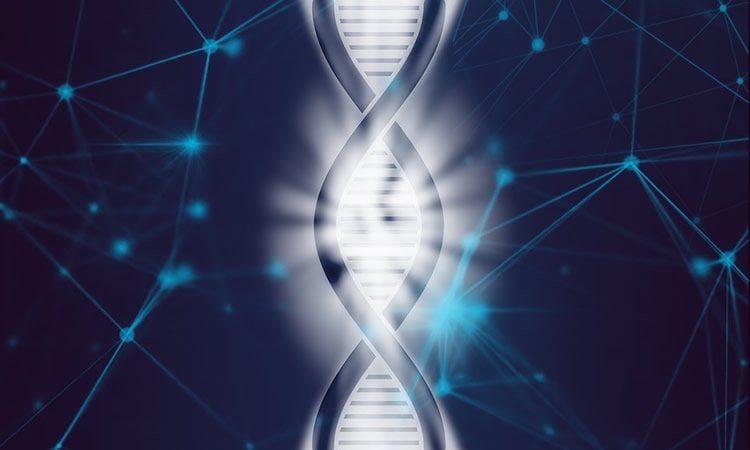Summary: Contradicting previous studies, UC Boulder researchers report there is no clear evidence of any candidate gene associated with depression.
Source: University of Colorado Boulder
Over the past quarter-century, researchers have published hundreds of studies suggesting a small set of particular genes or gene-variants plays a substantial role in boosting susceptibility to depression. Such papers fueled hopes that clinicians could soon use genetic testing to simply identify those at risk, and drug companies could develop medications to counteract a few genetically-driven culprits.
But a new CU Boulder study assessing genetic and survey data from 620,000 individuals found that the 18 most highly-studied candidate genes for depression are actually no more associated with it than randomly chosen genes.
The previous studies were incorrect—or “false positives”—and the scientific community should abandon what are known as “candidate gene hypotheses,” the authors conclude.
“This study confirms that efforts to find a single gene or handful of genes which determine depression are doomed to fail,” said lead author Richard Border, a graduate student and researcher at the Institute for Behavioral Genetics.
Adds senior author Matthew Keller, an associate professor of Psychology and Neuroscience: “We are not saying that depression is not heritable at all. It is. What we are saying is that depression is influenced by many many variants, and individually each of those has a minuscule effect.”
For the study, published in the American Journal of Psychiatry, the authors looked at 18 genes that have appeared at least 10 times in depression-focused studies. Among them was a gene called SLC6A4, involved in the transport of the neurochemical serotonin. Research dating back 20 years suggests that people with a certain “short” version of the gene are at significantly greater risk of depression, particularly when exposed to early-life trauma.
The researchers also looked at genes involved in the production of brain-derived neurotrophic factor (BDNF) a protein involved in nerve formation, and the neurotransmitter dopamine.
Using genetic and survey data gathered from individuals via the UK Biobank, 23andMe and the Psychiatric Genomics Consortium, they set out to see if any of the genes, or gene variants, were associated with depression either alone or when combined with an environmental factor like childhood trauma or socioeconomic diversity.
The study is the largest and most comprehensive investigation to date of historic depression candidate genes.

“We found that, as a set, these candidate genes are no more related to depression than any random gene out there,” said Keller. “The results, even to us, were a little bit stunning.”
Keller notes that in the field of genetics, scientists have known for years that candidate-gene hypotheses were flawed. But hopeful researchers in other fields, including psychology, have continued to publish studies – often based on smaller sample sizes – which have kept the idea of a small set of “depression genes” alive.
“It’s like in The Emporer Wears No Clothes. There’s just nothing there,” said Keller. “I hope this is the final nail in the coffin for those kinds of studies.”
He and Border stress that their findings do not mean that research into the genetic underpinnings of depression should cease. Instead, they say, it should acknowledge that the genetic architecture of depression is more complicated than once thought. By understanding the thousands of genes associated with the disease, and what they do, researchers can ultimately come up with more accurate “polygenic scores” to predict risk and still potentially develop drugs designed to counteract that risk, they said.
In the meantime, Border says, consumers should be wary of claims that individual genes have large effects on complex behaviors. While the risk of some medical conditions, like breast cancer and Alzheimer’s disease, has been clearly linked to individual genes, it’s not so simple with traits like depression
“Any time someone claims to have identified the gene that ‘causes’ a complex trait is a time to be skeptical,” said Border.
Source:
University of Colorado Boulder
Media Contacts:
Lisa Marshall – University of Colorado Boulder
Image Source:
The image is in the public domain.
Original Research: Closed access
“No Support for Historical Candidate Gene or Candidate Gene-by-Interaction Hypotheses for Major Depression Across Multiple Large Samples” Richard Border, Emma C. Johnson, Luke M. Evans, Andrew Smolen, Noah Berley, Patrick F. Sullivan, and Matthew C. Keller.
American Journal of Psychiatry 0 0:0 doi:110.1176/appi.ajp.2018.18070881
Abstract
No Support for Historical Candidate Gene or Candidate Gene-by-Interaction Hypotheses for Major Depression Across Multiple Large Samples
Objective:
Interest in candidate gene and candidate gene-by-environment interaction hypotheses regarding major depressive disorder remains strong despite the controversy surrounding the validity of previous findings. In response to this controversy, the present investigation empirically identified 18 candidate genes for depression that have been studied 10 or more times and examined the evidence for their relevance to depression phenotypes.
Methods:
Utilizing data from large population-based and case-control samples (Ns ranging from 62,138 to 443,264 across subsamples), the authors conducted a series of preregistered analyses examining candidate gene polymorphism main effects, polymorphism-by-environment interactions, and gene-level effects across a number of operational definitions of depression (e.g., lifetime diagnosis, current severity, episode recurrence) and environmental moderators (e.g., sexual or physical abuse during childhood, socioeconomic adversity).
Results:
No clear evidence was found for any candidate gene polymorphism associations with depression phenotypes or any polymorphism-by-environment moderator effects. As a set, depression candidate genes were no more associated with depression phenotypes than noncandidate genes. The authors demonstrate that phenotypic measurement error is unlikely to account for these null findings.
Conclusions:
The study results do not support previous depression candidate gene findings, in which large genetic effects are frequently reported in samples orders of magnitude smaller than those examined here. Instead, the results suggest that early hypotheses about depression candidate genes were incorrect and that the large number of associations reported in the depression candidate gene literature are likely to be false positives.






